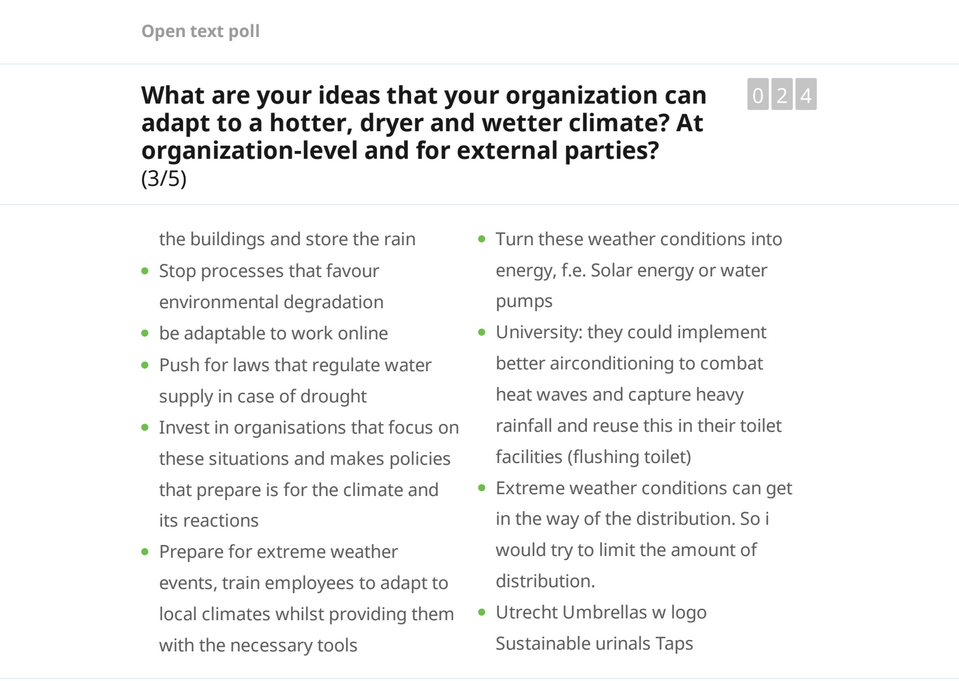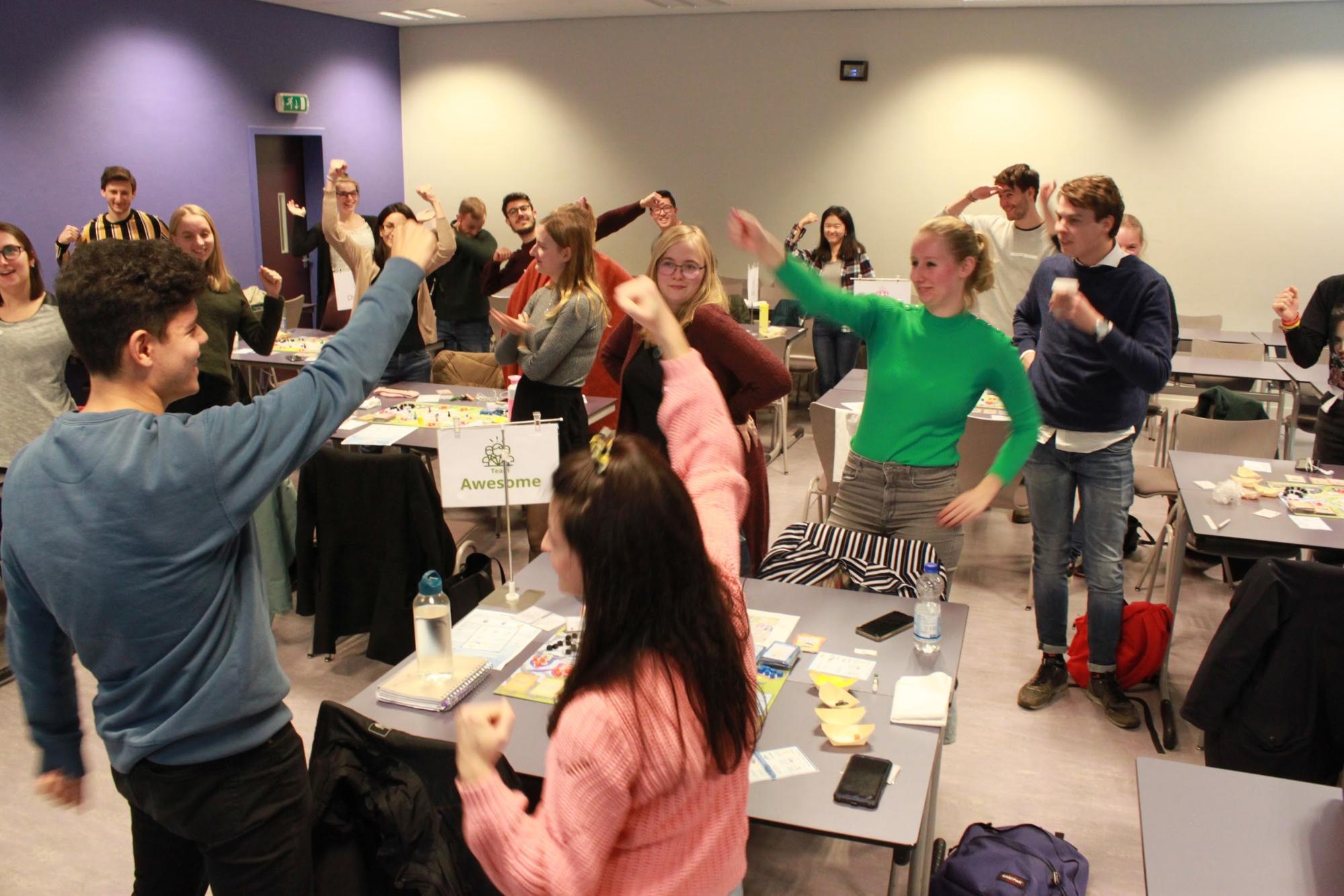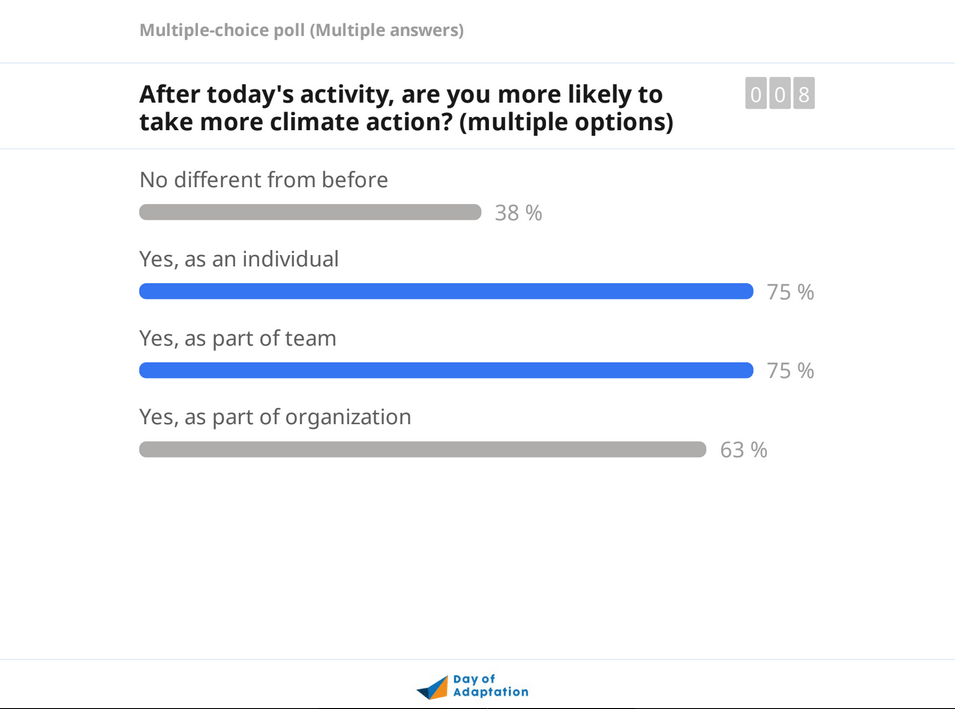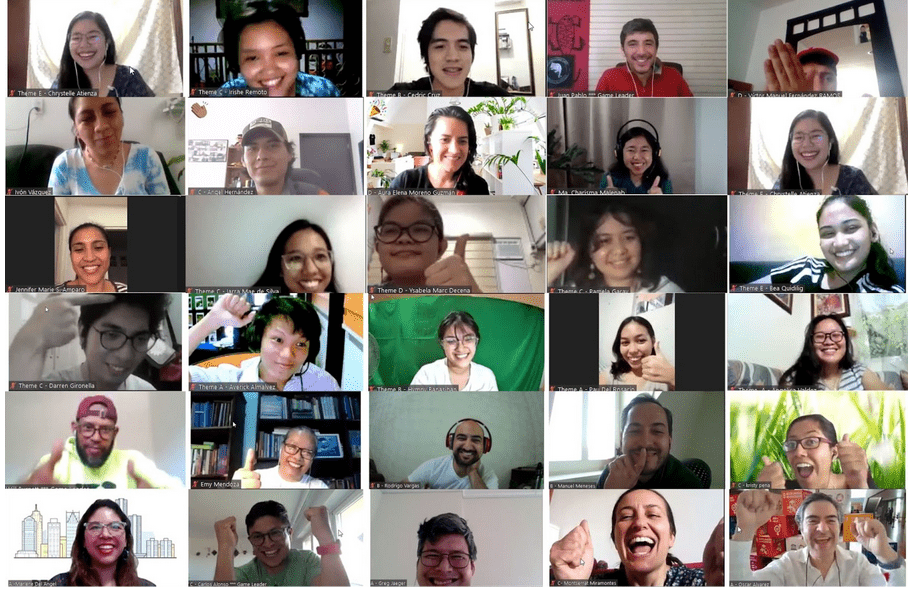If you work in education, whether that be biology or social sciences, you may have been thinking about how to get your students to engage with the topic of climate change with in-person or virtual group activities. General knowledge on climate change is everywhere, whether it is news about floods in Brazil, heat waves in India and Pakistan, or droughts in the Horn of Africa. Almost everyone knows about these events taking place, but it’s difficult to bring them up without sounding the alarm; to integrate climate change mitigation and adaptation through in-person and virtual group activities into the curriculum in a way that encourages students to talk and act, insteading of feeling powerless.
The Minions of Disruptions climate board game by Day of Adaptation was designed to be relatable for many kinds of audiences, including ones that do not work professionally with climate change or study the subject matter. Sustainability games for students, like our facilitated Game Day, raise critical conversations about climate change and its effects on different fields of study. At the same time it helps discover locally relevant ways to act and adapt. This is important as research suggests that both individual and collective action can help deal with climate anxiety and other difficult emotions linked to climate change.
Previously Day of Adaptation has collaborated with several educational institutions to provide sustainable development goals activities for students to better discuss climate change in their curriculum. The following three examples from our Game Day virtual group activities in 2021 can help you think about how a game-based approach could fit your educational needs.
1. The Game Day virtual group activities help students reflect on how climate change will impact the future of their field of study
Climate change will have an impact on most, if not all, industries in the future. Therefore, students can benefit from reflecting critically on climate change adaptation in their field.
Let’s take an example of the Frugal Innovation Master’s programme from Leiden university in The Netherlands. Frugal Innovation is a type of engineering which aims to reduce complexity, and thereby costs, of a good and its production in order to make it accessible in low-income country contexts. The course coordinators of this Master study reached out to Day of Adaptation to see how Minions of Disruptions could embed the topics of sustainability and climate to this subject matter. Consequently, the virtual group activities were adapted to reflect processes and organisations relevant in the field of engineering and frugal innovations.

Ideas the students from the Frugal Innovation program at Leiden University shared about how they could adapt to a hotter, drier and wetter climate. Students mentioned issue areas relevant to their future field of expertise such as management, strategic planning and engineering solutions.
What’s more, the Game Day was incorporated as virtual group activities at the very start of the semester to help both with team-building of the student group, and with ensuring that climate change and sustainability would feature in later discussions in the study. The Game Day facilitators encouraged the students to reflect on not only how climate change will influence their field of study, but also how they could address these concerns in their future careers. As an added bonus, the discussion in the virtual group activities also naturally turned to the role of the university and faculty, and their responsibility in mitigating and adapting to the changing climate. This is a discussion that educational institutions would certainly benefit from.
2. The Game Day raises an opportunity to brainstorm about how to improve best practices on the field
Even in fields that have clear linkages to climate change, it can be beneficial to raise critical discussions on how information about climate disruptions can be used to improve current and future practices. The Master study in Disaster Risk Management and Climate Change Adaptation at Lund University, Sweden, prepares its students for work in the humanitarian field. The students learn to consider climate change as a threat multiplier, which will challenge the way emergency responses and capacity development programmes can be carried out.
The programme coordinators reached out to Day of Adaptation to organise a Game Day where the first and second year students could come together and get to know each other better through fun sustainability games for students. At the same time, a component was added to the Day where students sat down together with their teachers and had critical discussions around current practices on the field, focusing especially on common ways of engaging with target groups.
After being inspired by the experience of sustainable development goals activities for students, the participants were asked to reflect about the challenges and opportunities of more innovative and interactive methods of communication, such as game-based approaches, that they could utilise as future professionals. These conversations inspired by sustainability games for students can help them critically examine their approach to their work as future professionals.

The Game Day raises conversations about climate change impacts on the field, as well as contributes to teambuilding among students.
3. The Game Day can enhance educational planning and communication between teachers
In addition to students, teachers can also benefit from getting together through virtual group activities to discuss their approaches to climate change in their lectures. This was done by a group of educators at the Richmond Vale Academy in St Vincent and the Grenadines in the Caribbean. The academy has worked for a decade at building local capacity to adapt to the changing climate through ecological farming. A teacher reached out to Day of Adaptation as they wished to get external support to re-align their team’s objectives and make more ambitious future plans.
Day of Adaptation facilitated a hybrid event for the teachers of the Academy, where some of the participants were in St Vincent while others joined from the United States and Denmark to share knowledge on their challenges and success stories on climate adaptation. The virtual group activities were used to build momentum for the teachers to remind themselves of the urgency of timely action, and to help them think about how they can incorporate more dialogue on climate change when teaching their students.

The teachers from the Richmond Vale Academy were asked if they were more likely to take climate action after their Game Day experience.
—
Can you see your students or educational team benefitting from these conversations on climate change? Get in touch with us to discuss your specific needs for in-person or virtual group activities that bring climate change into your classroom. Fill in this form or email us at info@dayad.org.
Authors: Minja Sillanpää & Minttu Hänninen
About the authors:
Minja has a MSc in Disaster Risk Management and Climate Change Adaptation from Lund University. She believes fostering justice, participation and creativity are gateways to meaningful climate engagement, and is fascinated by the incredible harmony of ecosystems as well as human adaptiveness.
Minttu has a MSc in Sustainable Development from Utrecht University, with a specialization in environmental governance. She is excited about sustainability communications, and dreams of a spacious rooftop terrace where she can grow herbs and colorful flowers.

